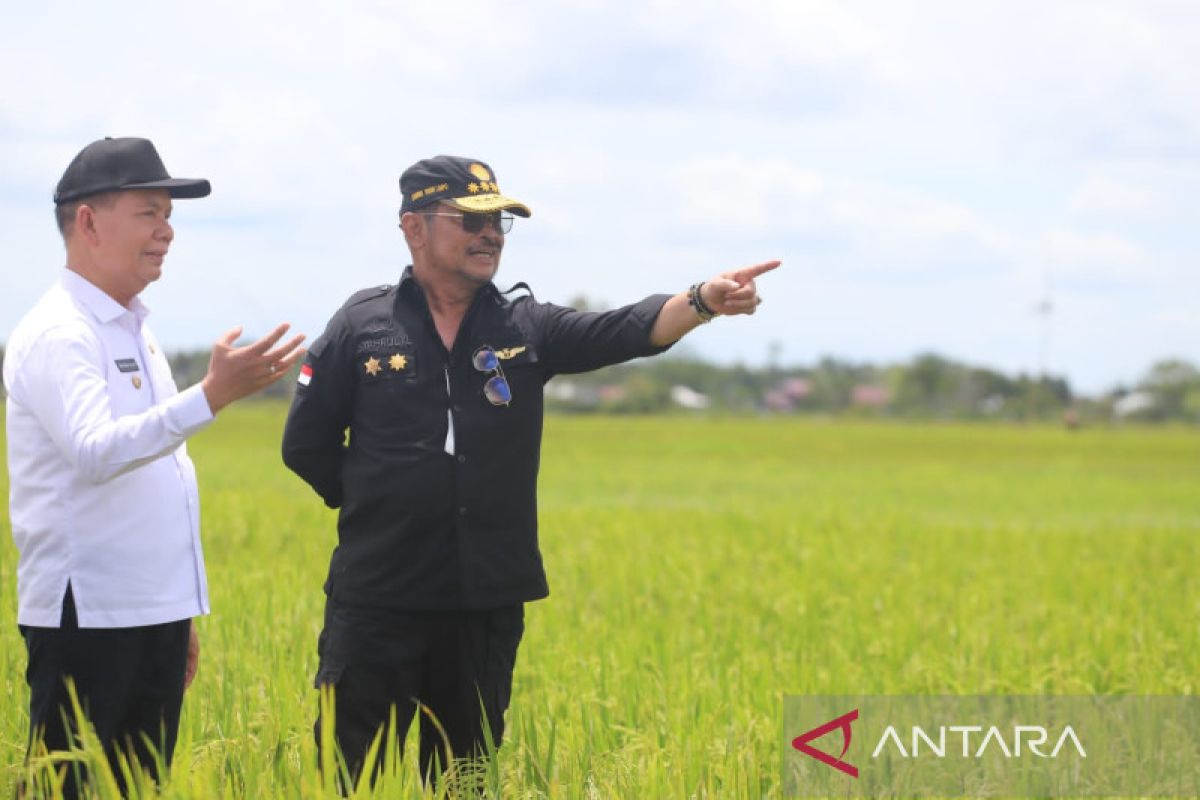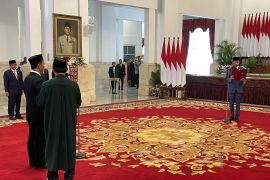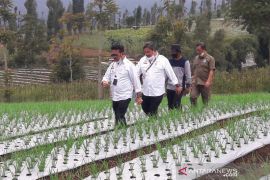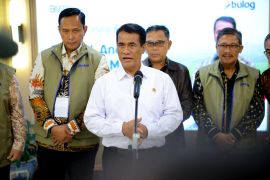In a statement, he said that the target of rice planting acreage in the Dadahup food estate in Kapuas was 1,020 hectares in Februari, 200 hectares of which have been planted with production estimated to exceed 4 tons of rice.
"We continue to make efforts so that in one or two weeks we will have 500 hectares of planted area," the minister said.
While the improvement in acreage has been quite satisfactory, he said, it would take as long as four years to get the best results from food estates in the region due to its swampy land.
Hence, he added, the local government should push for greater productivity in order to support national rice stocks in the future.
He said the country should not solely depend on the regions in Java, Sulawesi and Sumatra to produce food as Kalimantan has an expanse of land that can be readily used.
"Thus, President Jokowi (Joko Widodo) assigned this food estate (project) to push for national food resilience in the future," he pointed out.
He highlighted the good progress in the Kapuas food estate as it took longer to get similar results in other regions in Central Kalimantan.
In the last two years, he said, the government has developed 47 thousand hectares of land for food estates in the province, 22 thousand hectares of which have been used to grow rice.
The government plans to have another 12 thousand hectares of rice fields.
"We should not give up. We can do it," he remarked.
Meanwhile, Central Kalimantan Governor Edy Pratowo said that Kapuas food estate has shown good results.
Initially, it produced less than 3 tons per hectare, but currently, its production has reached 4 tons per hectare, he added.
"We will collaborate with the (Kapuas) district government so that the target for rice planting can be achieved," he said.
Related news: Government develops food estates to bolster food security: Minister
Related news: President calls for optimal food estate development
Translator: Kuntum Khaira R, Mecca Yumna
Editor: Anton Santoso
Copyright © ANTARA 2023












